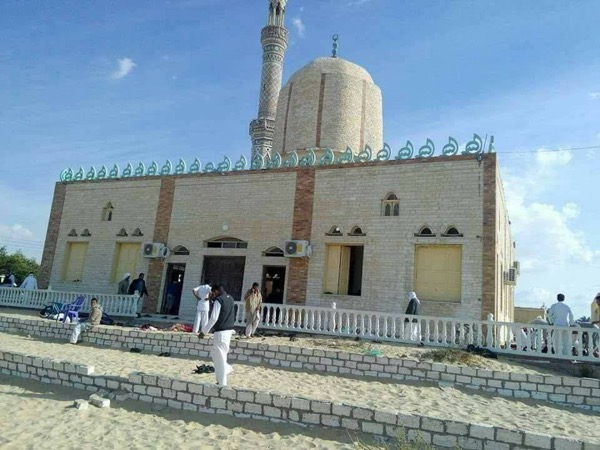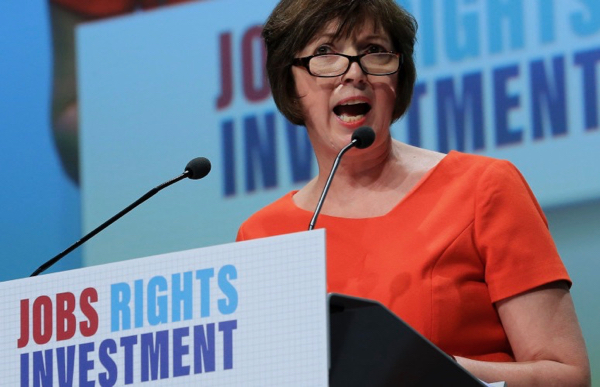The UK’s top trade union leader has called for a new Cardinal Manning to take up the fight against unfair employment practices.
Frances O’Grady, General Secretary of the TUC said during a conference at the Vatican that there is a need for a new figure in the mould of Cardinal Manning to protect workers made vulnerable by the digital revolution.
Addressing a Church gathering on Friday afternoon, she had called on Catholics to challenge the “titans of technology” such as Apple, Facebook and Google. These three, she argues, negatively impact workers by not paying their fair share of taxes while Uber and Amazon, exploit are “washing their hands” of the employer-employee relationship.
Speaking to The Tablet in Rome before giving her speech, O’Grady, who was brought up as a Catholic, held up the example of Cardinal Henry Edward Manning, the 19th century Archbishop of Westminster who played a crucial role in solving the London dockers’ strike. Manning, a former Anglican priest who was received into the Catholic Church, lobbied for those striking to be given a pay rise while denouncing employers for refusing to negotiate with workers.
“There is a very strong and practical model from Cardinal Manning,” said O’Grady, joking that she was wearing the scarlet red of a cardinal. “He didn’t just make moral pronouncements but rolled up his sleeves and tried to bring about a fair settlement to the dockers’ dispute.
"When I speak to those young workers of sports direct, McDonalds or Amazon, they feel pretty alone in the world. They are facing employers that are far, far more powerful than the dockers’ ones and need somebody to stand by their side and speak up for their rights. I would hope the Church can play a role.”
She added: “Because I was always brought up with the idea that it was a Catholic duty to join a union, it seems to me that it must follow that it is a Catholic duty for an employer to negotiate with workers.”
O’Grady was attending a Vatican gathering organised by Cardinal Peter Turkson, the leader of the newly formed social action department.
Focussed on the dignity of work and the trade union movements, the conference was titled “from Populorum Progressio to Laudato si’", the title of two major papal encyclicals. Populorum Progressio, seen as important document in the body of the Church’s social teaching, praises the work of unions while in Laudato si’, Francis focusses on the Church’s responsibility to protect the planet.
In his own speech to the gathering the Pope – who has previously said labour unions are essential to society – spoke about the “ethical imperative” of defending jobs particularly in the digital age, which he describes as a fourth industrial revolution.
“The world needs voices like yours,” Francis told them. “There are workers who…are faced with a utilitarian mentality, which is short-term and manipulative.”
Just before the Pope's address, O’Grady pointed out how the “global titans of technology now have wealth and power beyond our imagination” meaning that “many workers have become slaves to an app, with employers washing their hands of any notion of an employment relationship.”
She explained: “This year I met the ‘McStrikers’ – young fast food workers at McDonald’s, stuck on low pay and zero-hours contracts.
"Their demands are the same as the dockers nearly 130 years ago. They want a fair wage, guaranteed hours and recognition of their trade union. They need a modern-day Cardinal Manning.”
And in words which echo the Pope’s frequent critiques of the global capitalist system she stressed: “We must challenge the very values on which our economies are run. The market should be our servant, not our master.”
O’Grady, 58, was born on the Wood Farm Estate in Cowley, Oxford where she recalls a church community with “lively” young Dublin priests who had a close understanding of the issues their parishioners faced at work. She also credits instruction from local religious sisters for opening her to issues of global injustices.
“I remember really vividly them showing us a video about apartheid South Africa and that was the first time that I became really aware of a system that placed forced superiority of whites against blacks,” she said. “I wouldn’t have known about what was going on in the rest of the world and that kind of injustice if it hadn’t been for those nuns. I kind of feel I owe them my own political education. I struggle with other aspects of Catholic teaching but on social teaching I’m really glad that Pope Francis is revitalising it and making it alive and relevant for today.”
She added: “There are too few leaders speaking up for ordinary working people and the poor, but the Pope is one of them. His words are very powerful and often very profound. And as an old hardened trade unionist it’s making me think more deeply. He could shine a light, and is shining a light, and is revitalising that Catholic Social Teaching and making it relevant to a new age, a digital age. But he’s also giving people hope, the belief that through solidarity we can change things.”
While there are worries that through the growth of artificial intelligence millions of people’s jobs will be replaced by robots, O’Grady is hopeful that technology can be a force for “social good” by liberating people from menial jobs while solving health and environmental problems.
“Millions of jobs are being transformed,” she explained. “It is an opportunity to go beyond, not how many jobs, but which jobs.”



 Loading ...
Loading ...